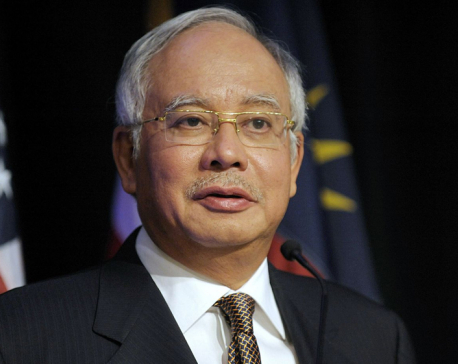
OR
New PM without parliament formation!
Published On: December 11, 2017 01:48 AM NPT By: Republica | @RepublicaNepal
KATHMANDU, Dec 10: Should a single political party secure majority seats in parliament, the party's parliamentary leader can be appointed the prime minister even before the formation of parliament.
Article 76 of the Constitution of Nepal 2015 states that the president shall appoint the parliamentary party leader of the political party securing a majority in the House of Representatives as the prime minister, and a Council of Ministers shall be formed in his/her chairmanship.
Officials involved in the preparation of the Parliamentary Regulations at Parliament Secretariat said they are drafting the regulations as per the spirit of the constitutional provision. There is no need to wait till the formation of a new parliament to appoint the prime minister if a single party secures the required majority seats in parliament, they say.
Although the left alliance comprising CPN-UML and CPN (Maoist Center) is poised to secure about a two-thirds majority in the new parliament, it is still not clear if the UML that has won the highest number of seats so far would be able to garner a simple majority in parliament consisting of 275 members that includes 110 members elected under the proportional electoral system. Legally, the UML and the Maoist Center are still separate political entities.
The Election Commission (EC) shall announce the total seats won by the parties after concluding the vote counting of both first-past-the-post and proportional electoral systems. The EC has announced to conclude the counting of votes received under proportional electoral system by the end of this week.
But in case, none of the political parties secure the required majority votes in parliament, the president shall appoint as prime minister the member of the House of Representatives who can have the majority with the support of two or more political parties represented in the House of Representatives.
If there is a situation wherein it is not possible to make the appointment of the prime minister that way within 30 days of the final result of the election of the House of Representatives, or if the appointed prime minister fails to receive a vote of confidence within 30 days, the president shall appoint the leader of the party with the highest number of members in the House of Representatives as the prime minister, who needs to receive a vote of confidence within 30 days.
However, if the prime minister appointed fails to secure the vote of confidence within the stipulated date, the new constitution has a provision that allows the president to dissolve the parliament at the recommendation of the prime minister and announce the date for fresh elections.
You May Like This

Malaysia's PM Najib dissolves parliament
Najib is under pressure to deliver an emphatic win for the Barisan Nasional (BN) coalition, as he struggles to appease... Read More...

Pakistan PM congratulates PM Oli
KATHMANDU, Feb 18: Prime Minister of Pakistan Shahid Khaqan Abbasi has congratulated Prime Minister KP Sharma Oli on the assumption... Read More...

Former PM Oli calls on PM Dahal
KATHMANDU, Sept 11: Ahead of Prime Minister Pushpa Kamal Dahal's scheduled visit to India (September 15-18), a delegation led by... Read More...



Just In
- Lack of investment-friendly laws raises concerns as Investment Summit approaches
- 550,000 people acquire work permits till April of current fiscal year
- Fixing a win by outlawing dissent damages democracy
- MoHP cautions docs working in govt hospitals not to work in private ones
- Over 400,000 tourists visited Mustang by road last year
- 19 hydropower projects to be showcased at investment summit
- Global oil and gold prices surge as Israel retaliates against Iran
- Sajha Yatayat cancels CEO appointment process for lack of candidates










_20220508065243.jpg)


Leave A Comment